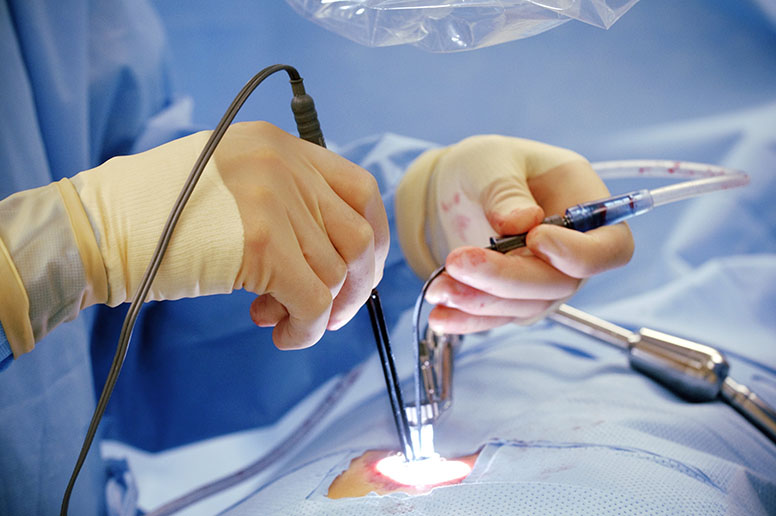How To Choose The Right Heart Bypass Surgery?

Heart bypass surgery is an essential part of modern medicine. It’s one of the most common surgeries performed on humans and it’s also one of the most effective. For most people, heart failure — a buildup of pressure in the heart due to problems with the heart itself — is caused by age or genetics. But for others, heart failure is brought on by a variety of other conditions, including diabetes, high blood pressure, obesity and smoking. If left untreated, heart failure can lead to several other problems, including stroke
What Is Heart Failure?
Heart failure is a condition in which the heart isn’t getting the amount of blood it’s supposed to be pumping. Blood flow is reduced in the muscles surrounding the heart, which can lead to muscle weakness, fatigue and, in some cases, heart failure. When the heart can’t generate the pressure it needs to push the blood through the blood vessels in the body, blood flow into the tissues that surround the heart becomes reduced. The average heart bypass surgery cost is around Rs. 350000
Types of Heart Failure
There are multiple types of heart failure, and the two most common are impaired left-sided heart failure, which is what you have if your left ventricle can’t perfuse the muscles around it, and impaired right-sided heart failure, which occurs when the muscles around the heart aren’t functioning as well as they should. Here are some other types of heart failure: atrioventricular canalicuity, atrioventricular nodular hyperplasia, atrioventricular system failure, atrioventricular canal displacement, aortic root compression, and ventricular septal defect.
How to Choose the Right Heart Bypass Surgery?
Cardiac Bypass Surgeries are categorized by how the heart is affected. There are three types of heart bypass surgeries: open, minimally invasive and stent. In open-heart surgery, a team of surgeons removes the heart and then simply leaves the body part behind. In minimally-invasive heart surgery, surgeons use a device to create a passageway through your chest wall, which is then followed by a bypass procedure that involves putting a tube in your heart. In-stent surgery, a stent is placed in your heart to create a passage through your body, which is then followed by a bypass procedure that uses a stent to sustain blood flow.
The Surgeon You Need To See

Some surgeons specialize in heart bypass procedures, as well as surgeons who see everyone, and in some cases, heart disease is the main concern. You should choose a surgeon based on several criteria, including his or her reputation for performing high-quality surgery. Your cardiologist will recommend a surgeon, but you’re ultimately responsible for making the final decision. When looking for a surgeon, you should be aware that he or she may perform more types of surgery than other physicians. If you have a specific type of heart condition, it makes sense to look for a surgeon who specializes in performing only that type of surgery. This is because it’s much more difficult to perform a variety of surgeries successfully than to do just a few well. If you’re unsure where to start looking, you can always ask your doctor.
The Food You Should Avoid
There are a few things you should avoid if you’re thinking about having heart surgery, regardless of which type you have.
Don’t drink alcohol. Alcohol lowers your blood pressure and can lead to reduced output from your heart. You may be given medication to help with this, but it’s not a good idea because you could end up with abnormal heart rhythms.
Don’t take certain medications. Some of these may interact with the anesthesia in surgery and lead to an abnormal heartbeat.
Don’t eatcertain foods. Some people are sensitive to certain foods, so you should discuss this with your doctor.
Conclusion
Heart surgery is an operation that is performed on people with various conditions that affect the heart. This can include congenital defects or narrowing of blood vessels due to fibrosis (scar tissue from chronic lung disease) or a previous injury. Heart surgery is also performed on infants and children who are born with heart defects, or develop a heart defect at an early age. People may also undergo heart surgery if they have a serious infection in the heart.
Heart surgery, also called cardiothoracic surgery, is performed by a cardiac surgeon, who performs open-heart surgery (in which the chest is opened) or thoracoscopic surgery (in which small incisions are made to allow the surgeon to see what they are doing). Heart surgeons perform procedures that treat anything from infections to congenital defects. Heart surgeons work closely with cardiac anesthesiologists (who administer anesthesia during the procedure) and cardiologists (who diagnose and manage cardiovascular disease).
There are two main types of heart surgery: open-heart surgery, in which the chest is opened, and minimally invasive (or thoracoscopic) surgery, in which small incisions are used. These procedures may be done using general anesthesia (where the entire body is asleep), regional anesthesia (where the patient is awake but numb from specific areas), or a combination of both. Heart surgery may also be performed on infants who are born with defects or shortly after birth to repair defects they were born with. In these cases, general anesthesia is usually used. Normally, heart operation cost is around 3.5 lakhs to 4lakhs.









